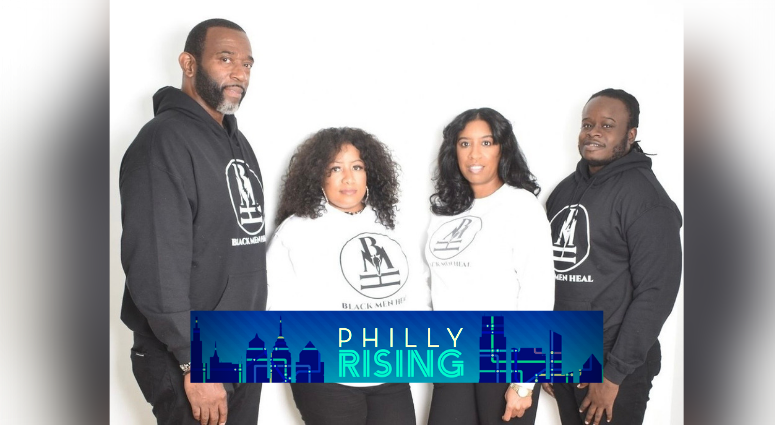
PHILADELPHIA (KYW Newsradio) — Following a pandemic year filled with grief, job loss and racial unrest, a mental health nonprofit started by two licensed therapists has quickly become a lifeline for hundreds of men in underserved communities.
Tasnim Sulaiman and Zakia Williams believe their efforts through the nonprofit Black Men Heal are key to reshaping that narrative of men's mental wellness, removing the stigma of treatment, and improving larger societal issues.
Experts say men are less likely than women to seek help for mental health problems because of the social push to be strong, dominant and in control. And research suggests that men who are unable to talk openly about their feelings are less likely to recognize symptoms of mental health problems in themselves, and less likely to reach out for support.
"Our primary goal is to find culturally competent providers who can provide culturally sensitive, trauma-informed treatment to our population," said Sulaiman.
She traces the origin of Black Men Heal back to the years when she was running her own practice and she saw gaps in the health care system.
"I just felt like there was not a lot of Black men who were coming in to therapy. And as I started to really kind of look into what might some of those reasons be, one of the big reasons was cost," Sulaiman said.
"I was mostly out of network, and private practice charging over $100 a session. Oftentimes, I had to turn people away, because I didn’t take their insurance and they couldn’t afford it."
Now she helps bridge those gaps through the nonprofit, helping Black men access mental wellness by eliminating the barriers -- starting with cost.
"We provide free, quality therapy to men of color, and also match them up specifically with culturally competent providers. So we also recruit therapists of color as well to service the men," she said.
Williams says the organization started out with few resources and only the help of volunteers. She volunteered her own private practice space to the cause.
"On our application, we asked if they’re willing to talk about their experience with eight other Black men," she said. "That’s one way that they’re able to break down the shame and the stigma around it, because men are more likely to take advice from their peers."
Reflecting on the tragic deaths of Black men in the last year, including Ahmaud Arbery and George Floyd, and the social unrest that followed, Sulaiman says it was a stressful time for everyone, but there was a silver lining for the organization.
"The need increased. People seeking therapy really increased," she said. "But also awareness of Black Men Heal, I think, really increased around that time. Maybe because of our name, or maybe because of the unique service that we were offering, and specifically targeting African American men, which I don’t think had really been done before."
Over the past year the Black Men Heal has gained nearly 30,000 Instagram followers. Williams says they get about 100 applicants every week. They recently started hosting a virtual safe space for men to discuss te issues that are affecting them. And working virtually has allowed Sulaiman and Williams to help more men domestically and internationally.
Sulaiman and Williams say interrupting cycles of trauma is a key component of tackling societal crises like rising gun violence.
"One factor of successful therapy is the therapeutic alliance. I'm born and raised in North Philly. It’s easier for me, when I’m seeing the clients, if they experience some of the things I know exactly what they’re talking about," Williams explained.
Sulaiman says untreated trauma leaves a person more vulnerable to violent impulses and less able to regulate emotions.
"These are all the different things that are exacerbating an increase in violence. ... Therapy really helps change the brain. And changing the brain is what is helping to heal, and helps you get out of this traumatized state," Sulaiman said. "And we hope that that will actually help to contribute to a decrease in the violence."
They say the more resources they have, the more people they can help. Black Men Heal will be present at Juneteenth events planned around the city this weekend. More information is available online.



